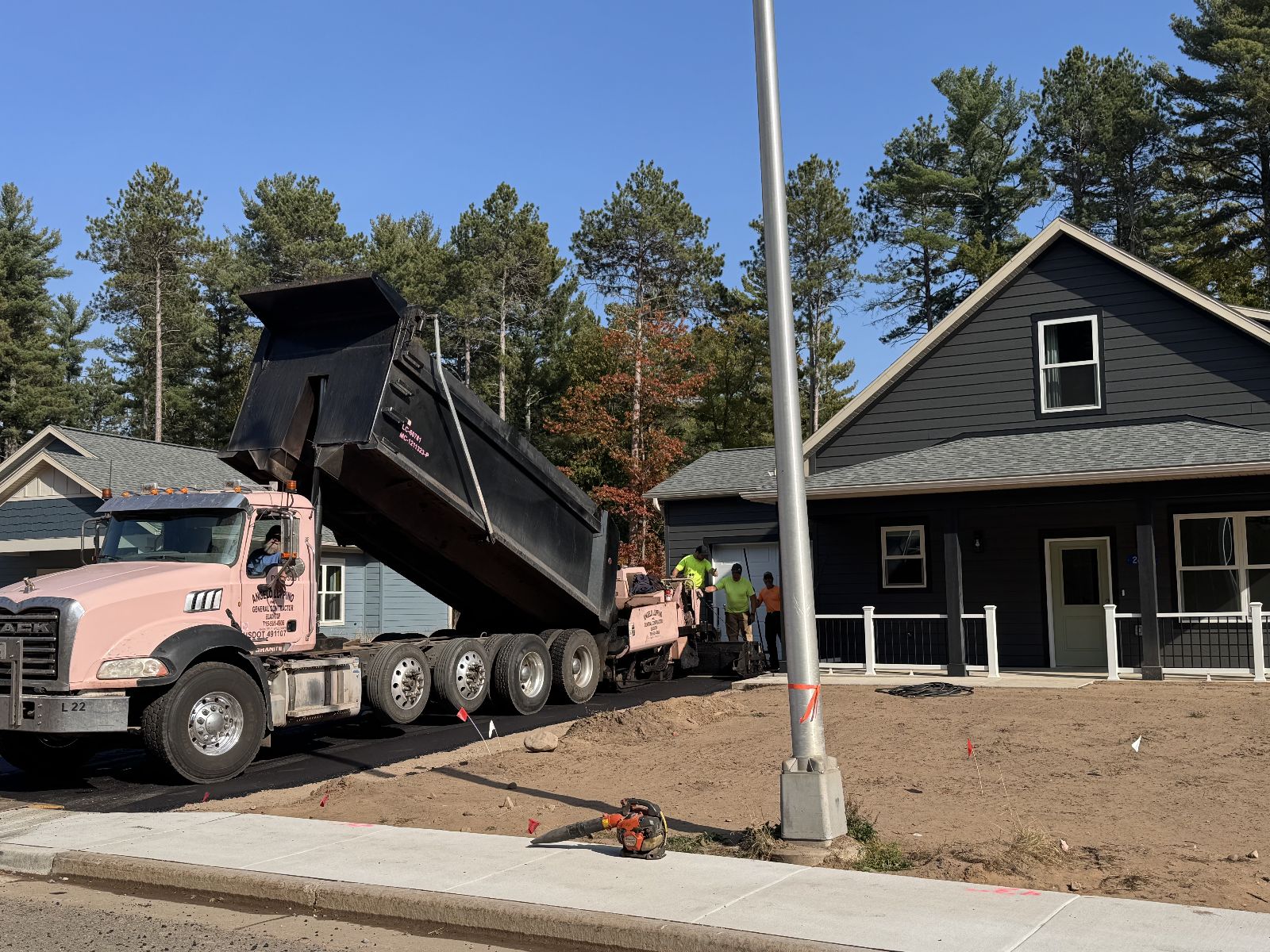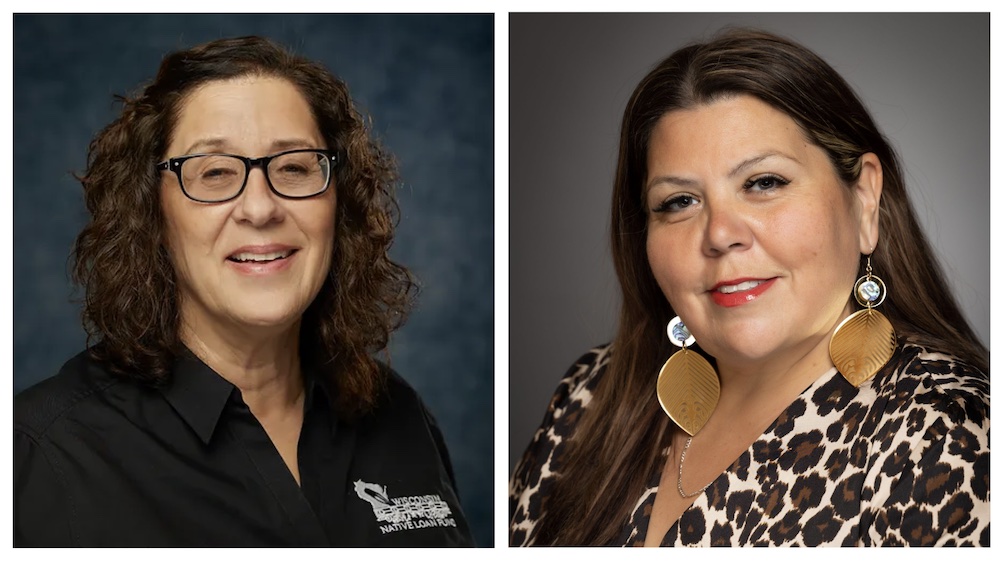
- Details
- By Chez Oxendine
- Real Estate
Jeff Ackley, Jr. spends his spare time building his daughter’s future — board by board, nail by nail. It’s the only path to homeownership that he can see for her, amid a housing crisis gripping Native American communities across Wisconsin.
The situation is especially severe at the Lac du Flambeau Band of Lake Superior Chippewa, where Ackley serves as executive director of the tribe’s housing authority. The tribe needs at least 450 new homes for its 2,500 tribal members living on its reservation, mirroring shortages across Wisconsin’s other 10 federally recognized tribes.
The four-bedroom, three-bath house will cost Ackley about $275,000 in materials alone. Hiring a contractor would double that price, he estimates, pushing it far beyond what his daughter could finance.
“Getting a loan like that won’t happen for a lot of people,” Ackley told Tribal Business News. “It’s very hard for millennials or the new generation to get into housing. The focus is always on rentals, not homeownership.”
A typical 2-bedroom rental home in Wisconsin runs about $1,200 a month, Ackley said. By comparison, the mortgage he pays on his four-bedroom house is $1,500 a month — offering significantly more room and value per dollar.
Multiple groups have risen to tackle those problems: financial institutions, state agencies, policymakers, and Native advocacy groups all want to put more people in more houses. But mostly, they’ve been working on their own, which has stifled the overarching impact, says Cheryl Cloud, director of the Wisconsin Native Loan Fund.
“We’ve all been working in our silos to solve that particular issue,” Cloud told Tribal Business News. “We want to all be at the same table talking about the same issues and working on things together.”
 Cheryl Cloud (left), director of the Wisconsin Native Loan Fund, and Fern Orie, interim CEO of the Wisconsin Indigenous Housing and Economic Development Corporation, are leading efforts to launch the Wisconsin Native Homeownership Coalition
Cheryl Cloud (left), director of the Wisconsin Native Loan Fund, and Fern Orie, interim CEO of the Wisconsin Indigenous Housing and Economic Development Corporation, are leading efforts to launch the Wisconsin Native Homeownership Coalition
The solution comes in the form of the Wisconsin Native Homeownership Coalition, a group of organizations pooling their services and resources to broaden housing access to Native people in Wisconsin. The coalition is helmed by the Wisconsin Indigenous Housing and Economic Development Corporation (WIHEDC), a collective of four Native community development financial institutions (CDFIs): the Wisconsin Native Loan Fund, Cedar Growth, First American Capital Corporation, and Woodland Financial Partners.
Development funding for the coalition was kickstarted by a partnership grant between New York-based financier Morgan Stanley and community development investor Opportunity Finance Network (OFN). The $200,000 grant was awarded to the Wisconsin Native Loan Fund, which also received a $10,000 grant from the Wisconsin Housing and Economic Development Authority. Cloud said the funding would cover initial costs around data collection and building out the coalition’s structure going forward.
The coalition will bring together WIHEDC and other statewide stakeholders to address common housing issues facing Native American communities in Wisconsin. Services under the coalition will include everything from technical assistance around tribal housing funding to offering financial literacy, homeownership, and maintenance training.
Fern Orie, interim CEO for WIHEDC, said that was just the start. Eventually, WIHEDC wants to begin offering construction and contracting services, ensuring that Native people can build Native homes. In that way, the coalition is not only supporting Indigenous homeownership, but economic development and workforce development as well.
“We want to close all these gaps in our communities,” Orie said. “The people involved in the coalition have been working in Native housing for the last couple of decades, and so we see the needs in the housing arena: you need housing stock, and we need to be creating our own housing for ourselves.”
For Cloud, success means removing the barriers between different organizations working on the same thing. She wants to see tribal housing authorities working with state agencies to find new solutions for funding, for example, or more tribal housing authorities with workforce development programs.
“Coming together and working on things together in this sort of format - that’s an easy, immediate measure of success for the coalition itself,” Cloud said. “I think from there, we have the capacity to increase the number of houses, to increase the number of families that can achieve homeownership, to increase the number of Native Americans who know how to develop or build houses. Those are all goals of ours.”
A model in South Dakota
The Wisconsin Native Homeownership Coalition is not the first of its kind. In fact, the organization plans to follow in the footsteps of the South Dakota Native Homeownership Coalition, a collaboration of Native housing organizations, Native CDFIs, and policy partners.
Formed in 2013, the South Dakota coalition has more than doubled the number of Native families who have achieved homeownership in recent years, according to NeighborWorks USA, which has provided funding and training to the coalition. A 2021 snapshot from the coalition showed 85 home-related loans closed and packaged, with 48 new Native homeowners. More than half of the loans came through Native CDFIs.
As Wisconsin prepares to launch, Cloud and the rest of the coalition’s lead organizations plan to convene with stakeholders in December to hold an initial meeting — to lay out priorities and proposals for those initial services, and determine what needs to be done first.
For Ackley’s part, he firmly believes there needs to be an emphasis on finding ways to make Native Americans homeowners, not renters. That’s important not only for building generational wealth, but current wealth, too: rental prices have climbed so high that mortgages are often cheaper, especially when referencing the square foot per dollar ratio.
“The biggest need in a lot of these communities is simply to give people hope,” Ackley said. “That hasn’t been the case in any of the places I’ve been or worked in my time. It’s not the emphasis or vision of a lot of tribal communities — they just want people housed, even if that means rentals.”
Ackley said starting up the coalition is a good move, as long as the focus lands squarely on — as the title of the coalition suggests — making Native people into homeowners.
“The mission and the vision has to be the same across the board — there are things we have to change,” Ackley said. “I’m glad they’re doing it. I think we can pull this off.”
